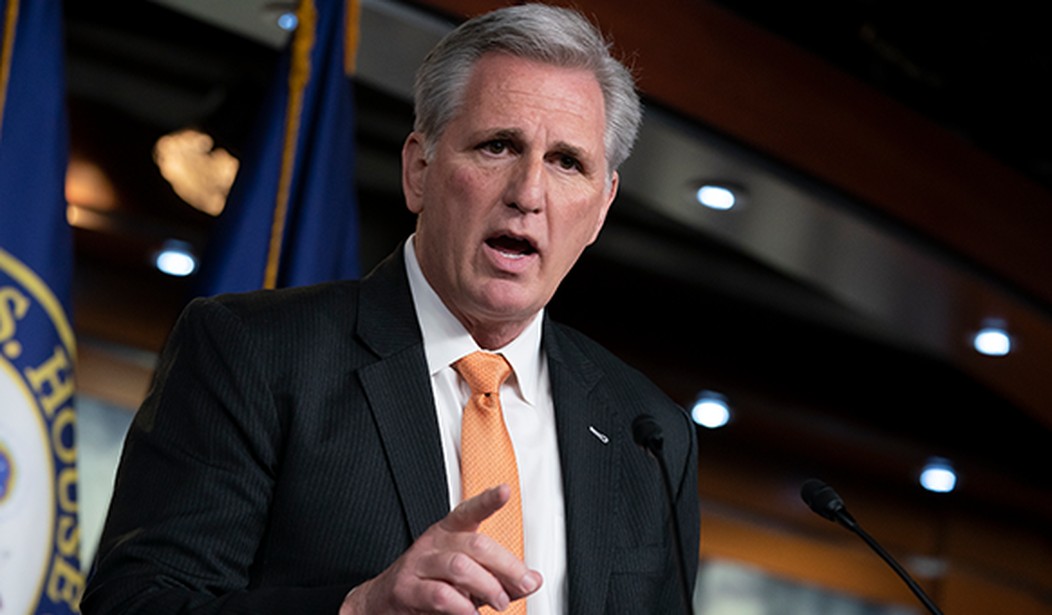House Minority Leader Kevin McCarthy (R) on Sunday said he supports members of his caucus who favor challenging the certification of the 2020 presidential results.
“I think it's right that we have the debate. I mean, you see now that senators are going to object, the House is going to object — how else do we have a way to change the election problems?” McCarthy told The Hill.
While McCarthy supports the effort taking place in the House of Representatives, which is being led by Rep. Mo Brooks (R-AL), House Republican Conference Chair Liz Cheney (R-WY), does not.
“As you will see, there is substantial reason for concern about the precedent Congressional objections will set here. By objecting to electoral slates, members are unavoidably asserting that Congress has the authority to overturn elections and overrule state and federal courts,” she wrote in a memo to her colleagues.
“Such objections set an exceptionally dangerous precedent, threatening to steal states’ explicit constitutional responsibility for choosing the President and bestowing it instead on Congress. This is directly at odds with the Constitution’s clear text and our core beliefs as Republicans."
Texas Sen. Ted Cruz (R) made waves over the weekend when he announced he was leading a coalition of 10 Republican senators who refuse to certify the election results. The coalition wants to establish an election commission, investigate allegations of fraud, and then decide whether or not to certify the results based on the commission's findings.
Recommended
According to Cruz, creating the election commission gives members of Congress a "third option" instead of voting whether or not to certify the results.
"Look, we got to vote on January 6th on certification and every member of Congress faces a dilemma. Frankly, two pretty lousy choices: one, we can vote to certify by not considering any objection. If we do that that will be heard by a lot of Americans as saying, 'We don't think voter fraud is a real concern. We don't think these claims should be investigated thoroughly,'" Cruz explained on Sunday. "I know that's not what most of us believe. And, secondly, almost all of us don't want to be in a position where we're suggesting setting aside the results of an election just because the candidate we supported didn't happen to prevail. That's not a principled constitutional position."
A bi-partisan group of 10 senators refuted Cruz's plans, saying the election is "over" and it's time to certify the results.
"The 2020 election is over. All challenges through recounts and appeals have been exhausted. At this point, further attempts to cast doubt on the legitimacy of the 2020 Presidential election are contrary to the clearly expressed will of the American people and only serve to undermine Americans' confidence in the already determined election results," the group said in a statement. "The voters have spoken, and Congress must no fulfill its responsibility to certify the election results."
Seven Republicans in the House responded by saying it's not Congress' position to challenge the results.
"The people cannot trust a system that refuses to guarantee that only legal votes are cast to select its leaders. The elections held in at least six battleground states raise profound questions, and it is a legal, constitutional, and moral imperative that they be answered," the coalition said in a statement. "But only the states have authority to appoint electors, in accordance with state law. Congress has only a narrow role in the presidential election process. Its job is to count the electors submitted by the states, not to determine which electors the states should have sent."
Roughly 140 members in the House are expected to challenge the election results on Wednesday. Cruz's delegation, along with Sen. Josh Hawley (R-MO), also plan to make the same challenges.
























Join the conversation as a VIP Member